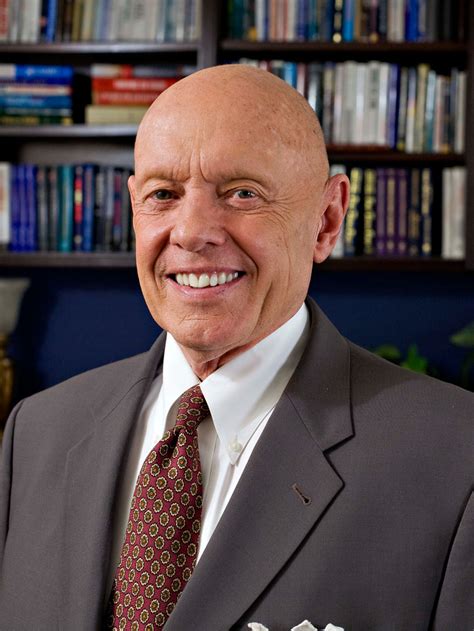A Quote by Howard Gardner
Perhaps, indeed, there are no truly universal ethics: or to put it more precisely, the ways in which ethical principles are interpreted will inevitably differ across cultures and eras. Yet, these differences arise chiefly at the margins. All known societies embrace the virtues of truthfulness, integrity, loyalty, fairness; none explicitly endorse falsehood, dishonesty, disloyalty, gross inequity. (Five Minds for the Future, p136)
Quote Topics
Across
Arise
Chiefly
Cultures
Differ
Differences
Dishonesty
Disloyalty
Embrace
Endorse
Eras
Ethical
Ethical Principles
Ethics
Fairness
Falsehood
Five
Future
Gross
Indeed
Inequity
Inevitably
Integrity
Interpreted
Known
Loyalty
Margins
Minds
More
None
Perhaps
Precisely
Principles
Put
Societies
Truly
Truthfulness
Universal
Virtues
Ways
Which
Will
Related Quotes
Honesty is a principle. Service is a principle. Love is a principle. Hard work is a principle. Respect, gratitude, moderation, fairness, integrity, loyalty, and responsibility are principles. There are dozens and dozens more. They are not hard to identify. Just as a compass always points to true north, your heart will recognize true principles.
Humility is the mother of all virtues: the humble in spirit progress and are blessed because they willingly submit to higher powers and try to live in harmony with natural laws and universal principles. Courage is the father of all virtues; we need great courage to lead our lives by correct principles and to have integrity in the moment of choice.
Using the phrase business ethics might imply that the ethical rules and expectations are somehow different in business than in other contexts. There really is no such thing as business ethics. There is just ethics and the challenge for people in business and every other walk in life to acknowledge and live up to basic moral principles like honesty, respect, responsibility, fairness and caring.
Kant's description of most ethical duties reads more like a description of moral virtues and vices. Once we see this, we see that Kantian ethics is indeed a kind of virtue ethics, and that it does not "divide the heart from the head" (to anticipate one of your later questions) but instead recognizes the deep truth that reason and emotion are not opposites.
Free societies, which allow differences to speak and be heard, and live by intermarriage, commerce, and free migration, and democratic societies, which convert enemies into adversaries and reconcile differences without resort to violence, are societies in which the genocidal temptation is unlikely and even inconceivable.
I think that every educator, indeed every human being, is concerned with what is true and what is not; what experiences to cherish and which ones to avoid; and how best to relate to other human beings. We differ in how conscious we are of these questions; how reflective we are about our own stances; whether we are aware of how these human virtues are threatened by critiques (philosophical, cultural) and by technologies (chiefly the digital media). A good educator should help us all to navigate our way in this tangled web of virtues.
I can say that China has been cooperating with India to search for solutions. On some issues, it's a question of principles for them. On some issues, it's a question of principles for us. On some issues they differ with us and there are issues on which we differ with them. There are some basic differences. But the most important thing is that we can speak to China eye-to-eye and put forth India's interests in the most unambiguous manner.
There is an almost universal tendency, perhaps an inborn tendency, to suspect the good faith of a man who holds opinions that differ from our own opinions. It obviously endangers the freedom and the objectivity of our discussion if we attack a person instead of attacking an opinion or, more precisely, a theory.


































